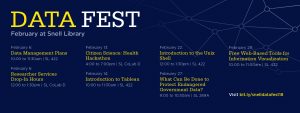Affordable course materials: reducing costs and promoting student success
We all remember textbooks. Memories of those big chunky books organized into chapters and sections, with tons of figures and charts explaining everything there is to know about a discipline. We stayed glued to them throughout each semester for the assigned activities and exercises they included. We studied them front-to-back for midterms and final exams.
From Anthropology to Zoology, textbooks are still used heavily. They are written by experts, reviewed by experts, and published by reputable academic publishers and other media companies—they are reliable. The problem is that prices have risen sharply, students in turn are paying more and must often turn to alternatives or choose different paths in the curriculum if none can be found.
Multiple studies have broken down the rise in the price of textbooks. A study concluded early in the last decade showed that between 2002 and 2012 the price of textbooks increased 82%. Another looked at 2006-2016 and found an 88% increase. More studies are underway. As the price of textbooks rises students are spending more; in the 2018-2019 academic year, students spent over $1200 a year on average on course materials, mostly textbooks.
When students can’t afford new textbooks, they have no alternatives but to pool funds to share books, rent, or purchase used copies, or use a copy on reserve at the library. Sometimes the only option is to purchase a new copy of a required textbook when the book includes accompanying online content in the form of activities, quizzes, or other coursework—a used or shared copy is of no use. Given these factors, in various surveys students have reported making decisions on which courses to enroll in based on what the required textbook(s) will cost.
It is no wonder there is a growing movement to utilize free/open educational content, and Northeastern University Library is on the front lines. Working with faculty and partners across the institution, librarians are helping faculty discover, evaluate, and integrate freely available textbooks and other Open Educational Resources (OERs), many of which are authored and reviewed by experts. In the case of Biology, multiple faculty members discontinued use of costly textbooks in favor of freely accessible, open texts: students enrolled in various Biology courses have saved over 100K since the summer of 2018. In related work, librarians are working to ensure faculty know how to maximize use of library-subscribed content such as online journal articles and e-books through dynamic reading-list creation tools and other services.
The library is actively presenting, creating partnerships, and raising awareness about the issues students face, and the options faculty have for finding and integrating alternatives and utilizing existing library content. Savings will continue to grow as the library works with more departments. The library is proud to be a part of this important movement.
For more information, visit the Affordable Course Materials guide.
 Here’s a taste of what we have planned:
Here’s a taste of what we have planned:
 Check out the full lineup and register here:
Check out the full lineup and register here:  Don’t miss the keynote event of Open Access Week! Join us tomorrow morning from 8:00-9:30 a.m. for continental breakfast with our special guest speaker.
Don’t miss the keynote event of Open Access Week! Join us tomorrow morning from 8:00-9:30 a.m. for continental breakfast with our special guest speaker. 


